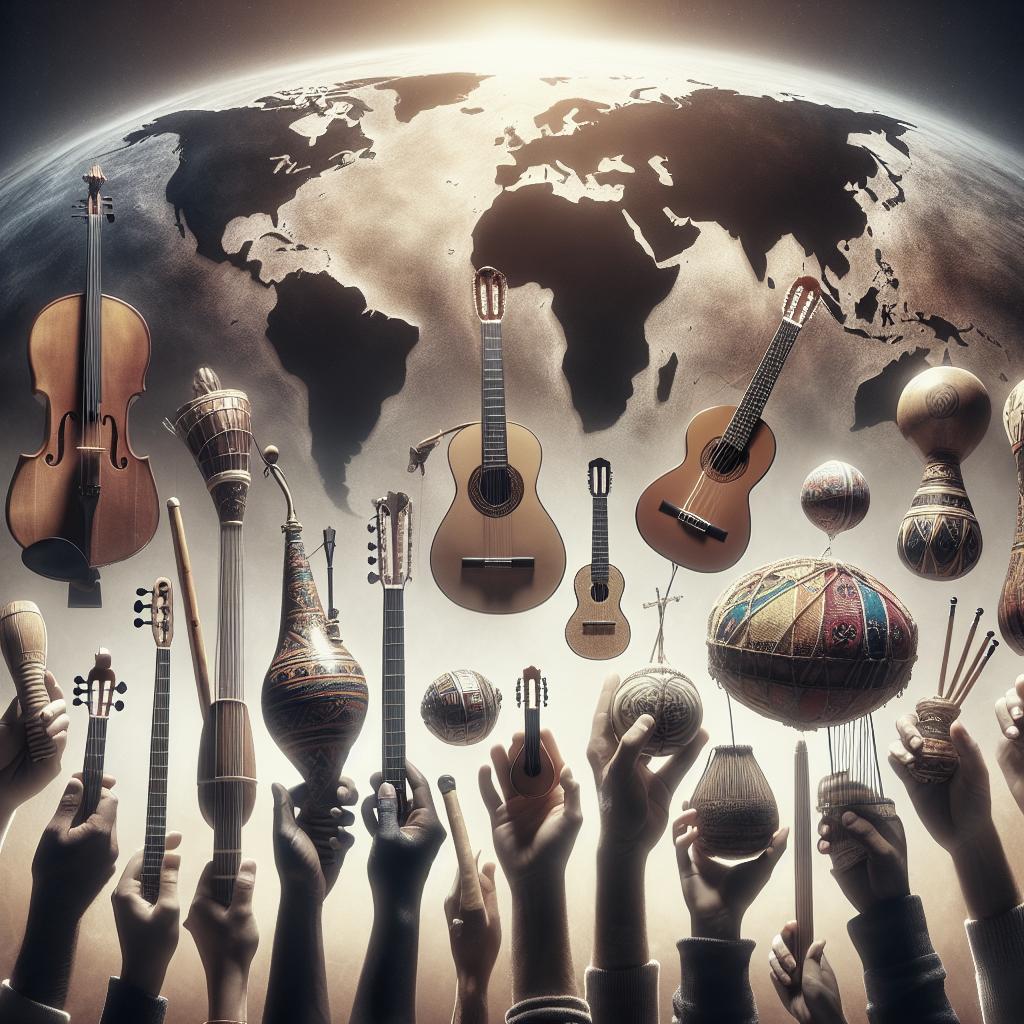“`html
How to Explore Global Music Culture
Discovering different global music cultures opens up a world of rhythms, melodies, and stories that transcend borders. From early history to modern developments, world music has evolved and inspired many. In this blog post, we delve into the origins and growth of world music. We explore its early history, its formal recognition in Britain and the United States, and how innovations and trends in later developments continue to shape and influence global sounds today. We’ll also touch on significant events like the introduction of the world music category at the Grammy Awards. Join us on this journey to understand the profound impacts and lessons from the vibrant world of global music culture.
Early History
What is world music?
World music is a broad term that encompasses various global musical styles and genres. It aims to bring together diverse musical traditions, often combining elements of traditional, regional, and contemporary sounds. The music under this banner can include everything from African drumming to Indian raga and the rich harmonies of choral singing from different cultures. The essence of world music lies in its ability to blend different cultural elements, offering a universal language that speaks to everyone regardless of origin.
World music celebrates diversity by highlighting unique instruments, scales, and rhythms. This genre often features non-Western traditions alongside Western influences, creating a fusion that honors multicultural contributions to the global music landscape. By doing so, world music helps to preserve cultural identities while simultaneously promoting inclusivity and appreciation for artistic differences.
When did the term world music originate?
The term “world music” gained prominence in the 1980s, though its roots reach far back in time. Initially, it was introduced as a marketing term to categorize non-Western or non-mainstream music, allowing record stores to feature these diverse musical traditions more prominently. The increasing global movement and communication of those years underscored the importance of a term that encapsulated a rich tapestry of global sounds.
It is important to note that while the term has facilitated exposure and commercial success for many artists, it also sparked discussions about the appropriation and oversimplification of diverse cultural expressions. Over time, world music has evolved to become both a social movement and an academic discipline, promoting intercultural understanding and collaboration.
Britain and the United States
When did the Grammy Awards introduce the world music category?
The Grammy Awards officially introduced the World Music category in 1992, responding to the growing popularity and influence of global music culture. This milestone recognized the artistry and cultural significance of musical styles that were once marginalized or overlooked by mainstream Western media. Including world music in such a revered platform underscored the genre’s relevance and importance in the global music industry.
The category has played a crucial role in acknowledging artists worldwide, ranging from legendary figures like Youssou N’Dour and Ravi Shankar to newer voices expressing contemporary interpretations of traditional sounds. This recognition has not only elevated individual careers but has also encouraged music fans to explore unfamiliar sounds and traditions, widening their understanding and appreciation of global artistic expression.
Later Developments
The evolution of technology and social media has significantly impacted the proliferation of world music, making it more accessible than ever. With platforms like YouTube, Spotify, and Apple Music, artists from even remote corners of the world can share their sounds globally, increasing exposure and bridging cultural gaps. This connectivity invites listeners to explore an extensive range of music, often leading them to discover and fall in love with genres they might not have known before.
In recent years, collaborations between global artists have become more prevalent as well. These partnerships create hybrid sounds that reflect an amalgamation of different cultural identities and promote innovative musical exploration. Such developments not only breathe new life into traditional styles but also foster a more inclusive global music community where artists and audiences of diverse backgrounds can coexist and thrive.
| Aspect | Highlights |
|---|---|
| Early History | World music encompasses various global musical traditions and emphasizes diversity and inclusivity through cultural fusion. |
| Origins of the Term | Originated in the 1980s as a marketing term; now a social movement and academic discipline. |
| Recognition in Grammy Awards | Introduced in 1992, recognizing and valuing the artistry of global music. |
| Later Developments | Technological advancements and collaborations have broadened accessibility and innovation in world music. |
“`

